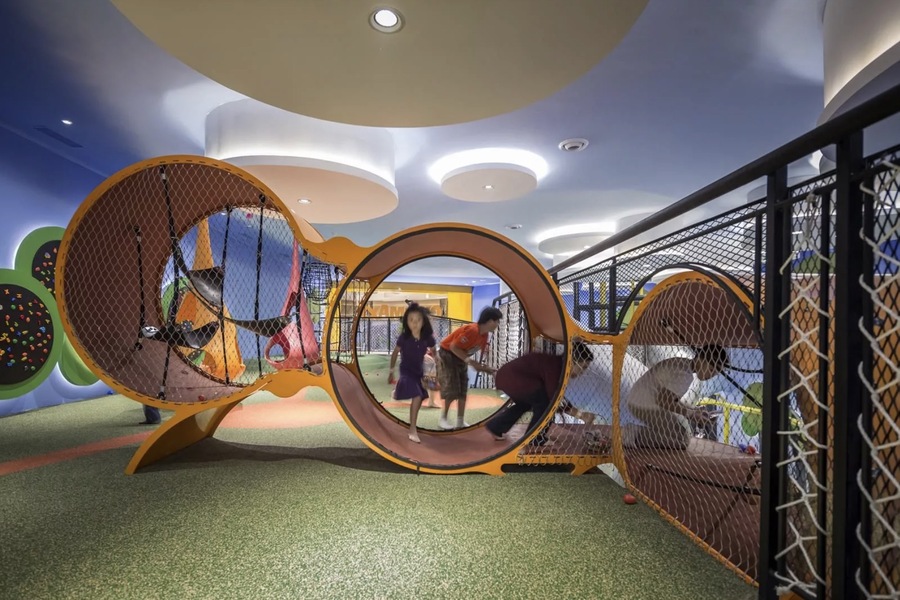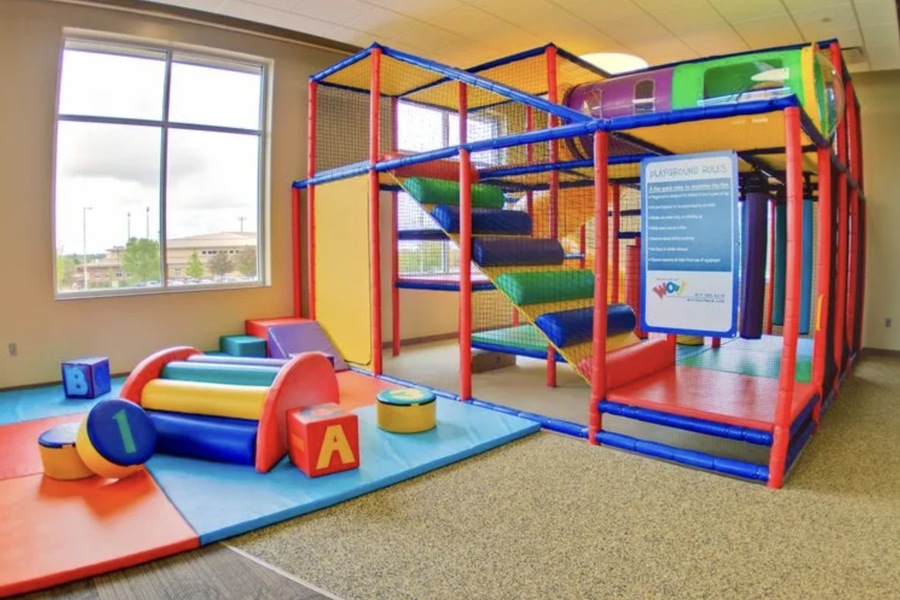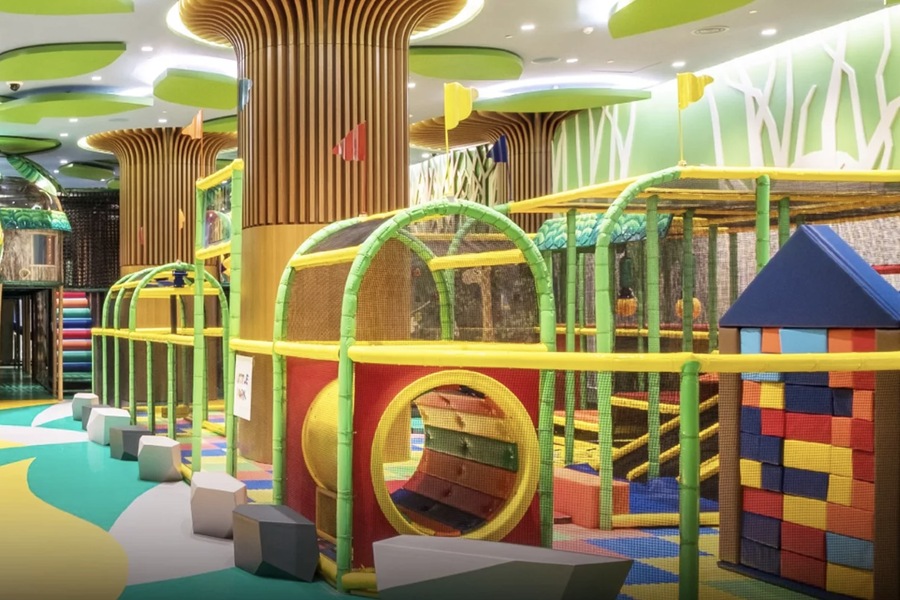The role of play in a child’s development has long been recognized, but its cultural significance is gaining more attention worldwide. In Dubai, a global city known for its innovative approaches and diverse population, indoor play parks have become a reflection of global trends in how play is incorporated into daily life. These play spaces not only provide children with opportunities for fun and social interaction but also embody broader cultural values that resonate across nations. This article explores how indoor play parks in Dubai mirror global trends, enhancing child development and serving as a hub for cultural exchange.
The Role of Play in Child Development
Play is fundamental to the physical, emotional, and cognitive development of children. It enables children to explore their surroundings, learn new skills, and develop social connections. Globally, play is seen as a critical part of early childhood education, with countries adopting play-based learning models to support developmental milestones. In Dubai, this global understanding of play is reflected in indoor play parks, where structured environments encourage imaginative play, physical activity, and socialization. These parks offer a variety of activities that challenge children to solve problems, work with peers, and develop motor skills, all within a safe and controlled setting.
Global Trends in Play Spaces
Globally, indoor play spaces are evolving to meet the changing needs of children and families. As urbanization increases, particularly in regions like the Middle East, the need for safe, accessible play environments has become more pronounced. Indoor play parks in Dubai are a direct response to these trends, offering climate-controlled spaces that provide year-round access to play. Across the world, there is also a growing emphasis on integrating technology with traditional play elements. Virtual reality (VR), augmented reality (AR), and interactive screens are increasingly being incorporated into play environments, and Dubai is no exception, with many indoor parks embracing these technologies to enhance the play experience.

Reflecting Cultural Diversity through Play
Dubai is a melting pot of cultures, with residents from over 200 nationalities. This diversity is mirrored in the city’s indoor play parks, where play structures and activities are designed to appeal to children from a wide range of cultural backgrounds. For instance, many indoor play parks offer themed play zones that reflect global cultures, allowing children to engage in play that is both familiar and novel. This multicultural approach to play ensures that children can learn about different cultures while interacting with peers, fostering a sense of global citizenship from an early age. This global cultural exchange is increasingly becoming a trend in play spaces around the world, and Dubai’s indoor parks are at the forefront of this movement.
The Role of Technology in Modern Play
Technology has a profound impact on play in today’s world, and this trend is strongly evident in Dubai’s indoor play parks. Globally, there is a shift towards integrating technology into play spaces to make them more interactive and engaging. In Dubai, indoor play parks often include interactive digital games, virtual reality experiences, and motion-sensor-based activities. These tech-infused play areas not only captivate children but also encourage the development of skills such as problem-solving and spatial awareness. The seamless blend of physical and digital play in Dubai’s indoor parks reflects a global movement towards tech-enhanced play, keeping children engaged in new and innovative ways.
Health and Safety: A Global Priority in Play Spaces
Globally, health and safety standards are critical when designing play environments, and Dubai is no different. With stringent regulations, Dubai’s indoor play parks adhere to global safety standards, ensuring a secure environment for children to explore and play. Features such as soft padding, non-toxic materials, and age-appropriate play structures are common in these parks, reducing the risk of injury. Furthermore, with growing awareness of hygiene, especially post-pandemic, Dubai’s indoor play parks incorporate high standards of cleanliness and regular sanitization routines, reflecting a global emphasis on health and safety in public spaces for children.
The Importance of Social Interaction in Play
Social interaction is a key component of play, allowing children to develop communication skills, empathy, and teamwork. Globally, there is a recognition of the social benefits of play, particularly in environments that encourage children to work together and solve problems collectively. In Dubai’s indoor play parks, children from diverse backgrounds come together, interacting through play in ways that break down language and cultural barriers. This mirrors a global trend where play spaces are designed to promote inclusivity and cooperation among children, making them more than just places of recreation but also environments where children learn important life skills.
How Dubai’s Climate Shapes Indoor Play Parks
Dubai’s hot and arid climate presents challenges for outdoor activities, making indoor play parks an essential part of the city’s recreational infrastructure. Globally, cities with extreme weather conditions have adapted by creating indoor environments that replicate the benefits of outdoor play. Dubai’s indoor play parks are a reflection of this global adaptation, offering air-conditioned spaces where children can engage in physical activity without being affected by the harsh weather. This approach aligns with trends seen in other regions with extreme climates, where indoor facilities offer children a consistent place to play throughout the year.
Sustainability in Play Spaces: A Growing Global Concern
Sustainability is becoming a core consideration in the design and operation of play spaces worldwide, as environmental consciousness grows. In line with global trends, many of Dubai’s indoor play parks are incorporating eco-friendly materials and practices. From energy-efficient lighting to the use of recycled materials in play structures, these parks are becoming more sustainable in their operations. Dubai’s focus on sustainability aligns with its broader national goals, such as the UAE Vision 2021, which emphasizes environmental responsibility. This trend reflects the global movement toward creating greener, more sustainable recreational spaces for future generations.

Supporting Cognitive Development Through Play
Cognitive development is closely linked to play, with research showing that engaging in structured play activities can enhance problem-solving skills, memory, and creativity. Globally, indoor play spaces are increasingly incorporating elements that stimulate cognitive growth, such as puzzles, strategy games, and interactive learning stations. In Dubai, indoor play parks are designed with these cognitive benefits in mind. By offering activities that challenge children to think critically and make decisions, these parks contribute to the overall intellectual development of children. This mirrors a global trend where play is seen as not just a physical activity but also a mental exercise that supports a child’s holistic development.
The Economic Impact of Indoor Play Parks
Indoor play parks are not only recreational spaces but also significant contributors to the local economy. In Dubai, the rise of indoor play parks has led to the growth of related industries, including child-focused retail, hospitality, and entertainment. Globally, the indoor play park industry is part of a larger trend of family-oriented leisure spending, which continues to rise as parents seek safe, engaging environments for their children. In Dubai, the economic impact of these parks is felt through job creation, tourism, and the overall enhancement of family-oriented services, reflecting similar economic patterns seen in other major cities around the world.
Conclusion
Dubai’s indoor play parks are a reflection of global trends in child development, cultural exchange, and recreational innovation. By providing children with safe, engaging environments that incorporate elements of technology, sustainability, and inclusivity, these parks align with international standards for play spaces. As Dubai continues to grow and diversify, its indoor play parks will remain key locations for fostering child development, supporting cognitive and social growth, and reflecting broader cultural values that resonate on a global scale.
Through these parks, Dubai not only addresses the needs of its residents but also contributes to the global conversation on the importance of play in a child’s life. Indoor play parks in Dubai are more than just spaces for recreation; they are vital cultural and educational hubs that reflect the evolving nature of play around the world.

